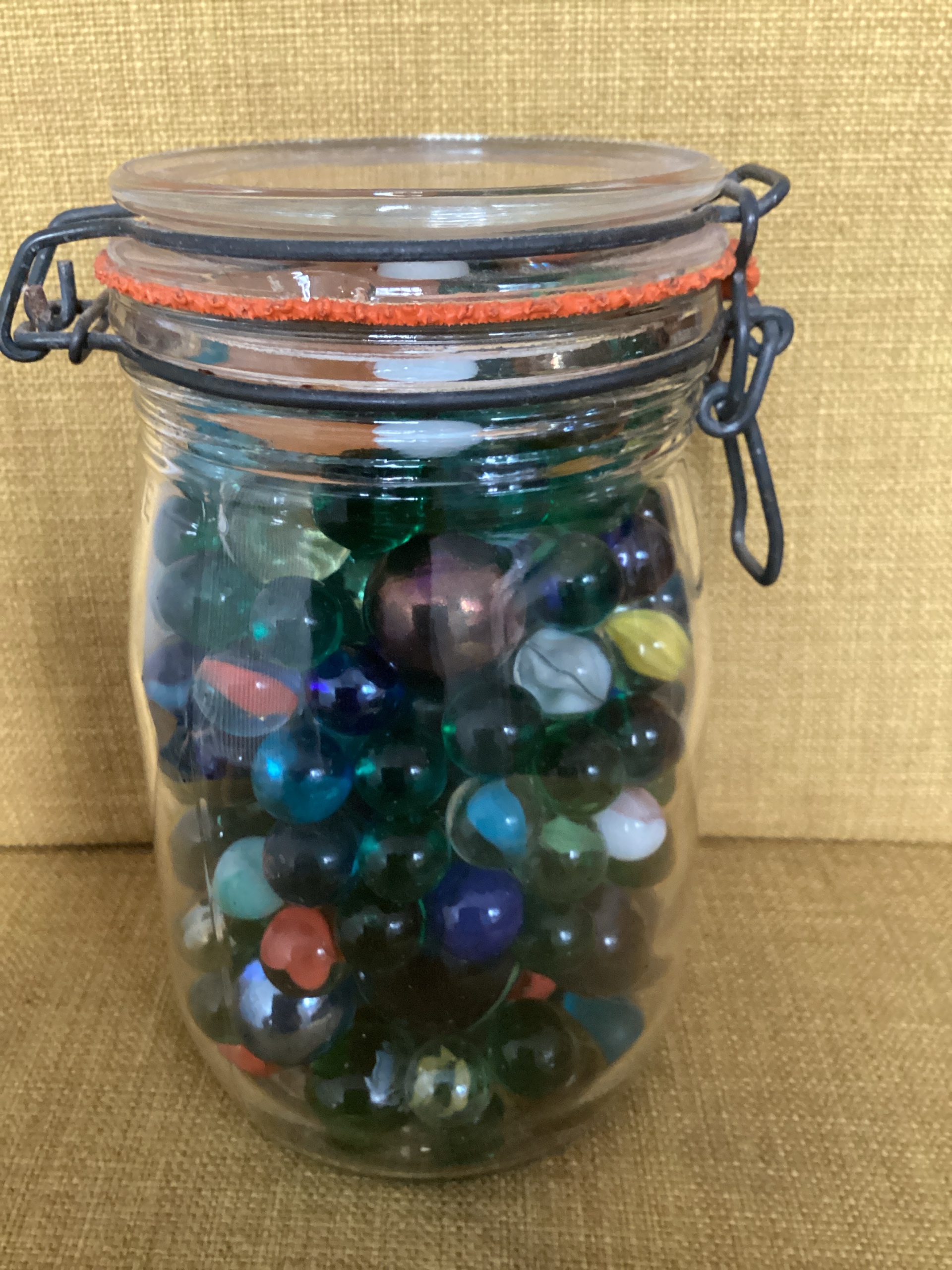Tracking Tips Two
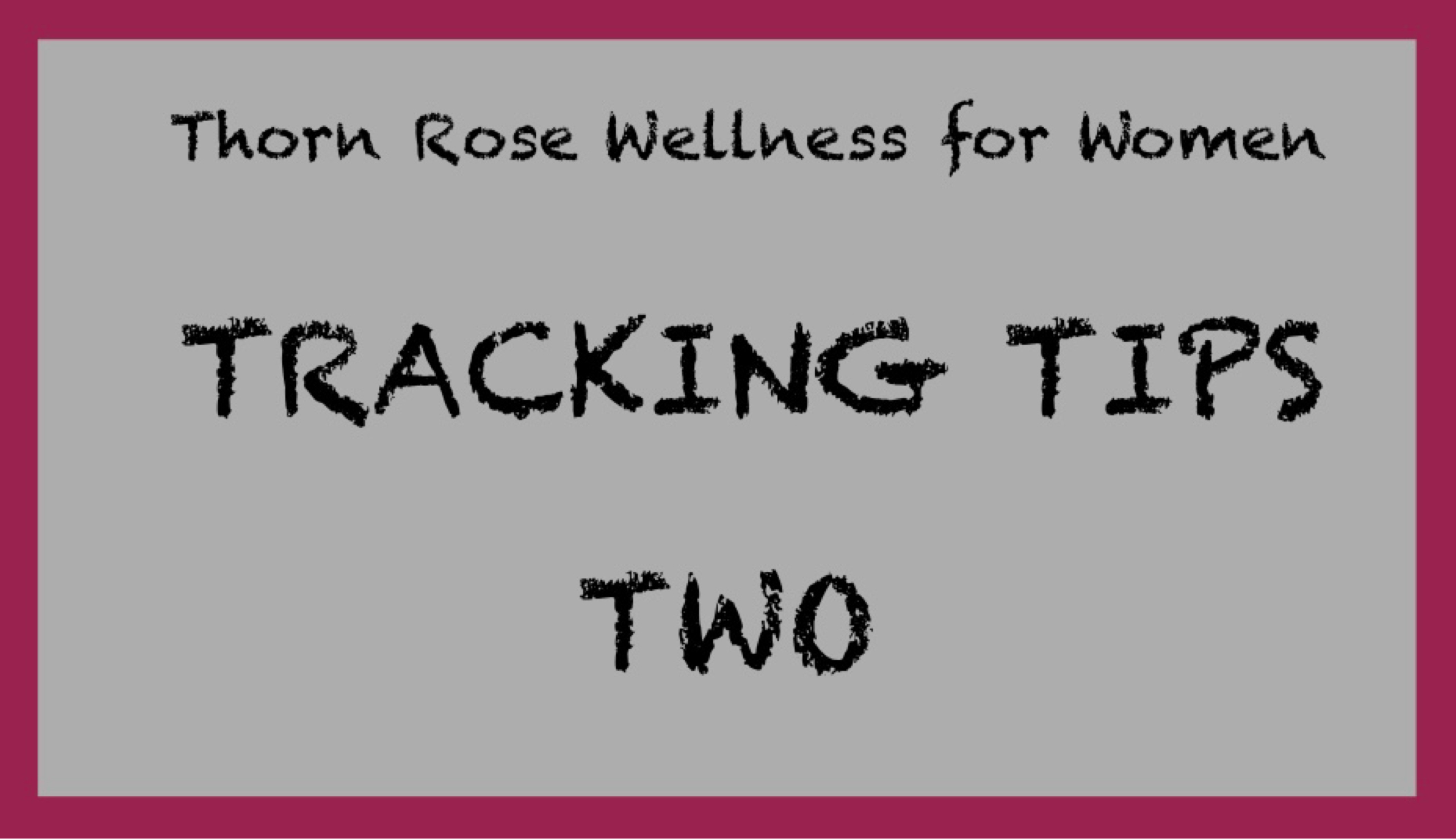
We have mentioned tracking before, and I think it can be a really worthwhile thing to do, but it does come with some caveats. Certainly if you don’t like keeping records, feel overwhelmed by the pressure, or find that keeping a food diary triggers disordered eating, then it probably isn’t the best choice.
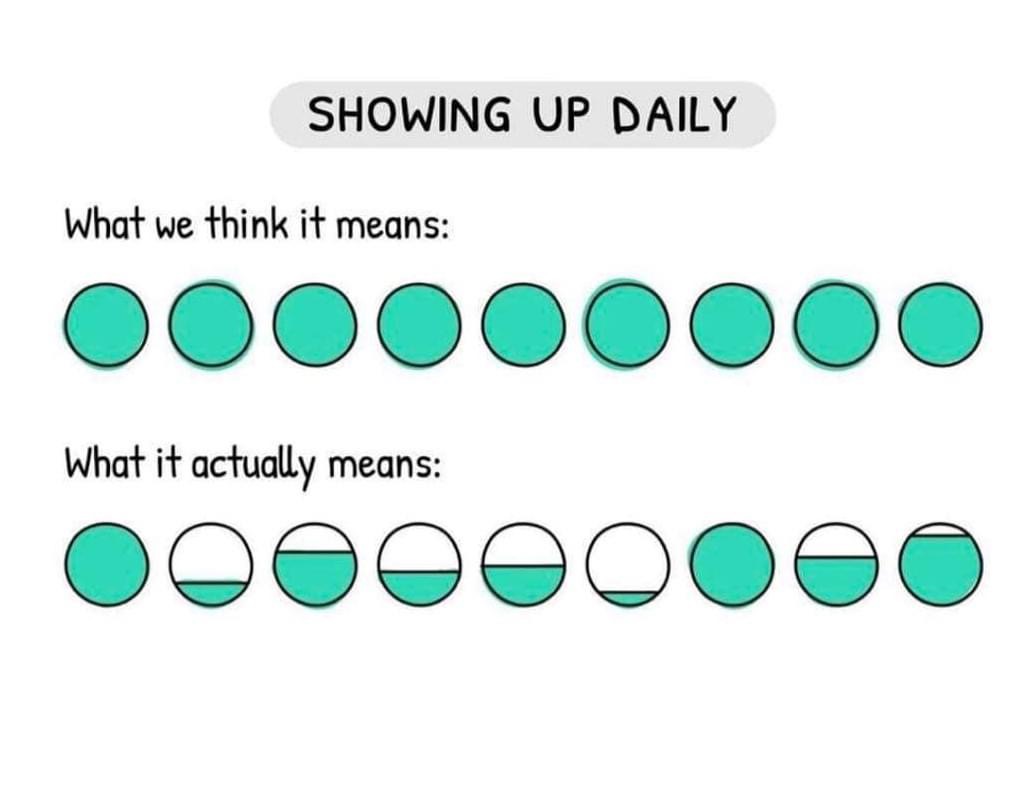
Whether you can put a number on it or not, as the picture above depicts, showing up daily (not sure why it's a nine day week), isn't about perfect attendance and ticking everything off all the time, progressing ever onwards to the fictional perfect you. It's about being tenacious about the things that matter to you, whilst understanding that life is complex and unpredictable and you may have to roll with whatever it brings. It's the coming back, not the occasional drifting away, that matters.
My husband ribs me, not unkindly, about his "perfect wife", but he's kind of missing the point. I'm not aiming for some image of perfection, I'm just showing up for myself in the most meaningful ways possible because that feels like the best thing to do with this one life we all have.
So, we'll take a little look at how we can help ourselves keep on track, whatever that might mean to us.
To an extent, you probably already know if tracking works well for you. Are you generally a record-keeper, or not?
Do you have detailed diaries? Or just occasional journal entries? Perhaps a series of notebooks with the first few pages filled out and then page after page of blankness…. (Guilty! And I tell myself I will not buy a new one until the others are more filled in…).
Do you tend to remember significant dates? Or is it all just a bit vague? I mean, your specific timeline, not dates of historical significance..
Do you like to make lists, and tick things off? Or do you find the making of the lists a waste of time when you’ve got a pretty clear sense of what needs to be done, so you might as well just get on and do it?
How much do you even like being “doing” focussed as opposed to “being” focussed?
Do you like having a device that tracks your exercise? Or does that feel like willingly subjugating yourself to a type of tyranny?
For those that love to make lists and charts and who keep detailed diaries, it can seem strange that others live their lives without documentation, and vice versa.
It is useful to find out what works for you, though, and to consider why you might or might not want to track certain things in your life.
Even just the act of observing can throw up some interesting insights, and there is a way of observing that is just that, and not judgment.
There are also helpful ways to configure your day so that certain triggers prompt certain actions, and there’s less need to consciously track. That can be helpful for people who really don’t like to have to monitor activities.
But if you do want to track, what might you track? And why?
Some suggestions include:
Step count, “activity” level, specific exercises, reps of exercises, minutes of exercise, days that you exercise on, how often you stand, how long you stand for
Supplements intake
Blood saturation levels
Resting heart rate
Heart Rate Variability
Walking Heart Rate Average
Your menstrual cycle
Blood pressure
Body composition
Sleep
Levels of all sorts of things in your blood - some that we didn’t touch on but many people monitor - such as cholesterol
How often you meditate
How often you practise conscious breathing
Alcohol intake
Water intake
What else can you think of?
You might also track those things that you want to spend less time doing - I have a timer for Facebook, for example. I might choose to ignore it, sometimes, but it at least lets me know how much time has passed!
One purpose for tracking is simply information gathering. What do we actually do with our time? What do we actually eat? Are there aspects that would be worthwhile changing, or are some things working just fine? The assumption always seems to be that we all need to exercise more, drink more water, whatever it might be, but in fact it’s possible we have some of those things really boxed off and we don’t need to spend our precious attention on those, and can turn it instead to other changes we might like to incorporate. Noticing that some things are going really well can be a great antidote to the general malaise around always feeling we should be doing more. Check out Ghastly Guilt and Senseless Shame for more on this.
So information gathering is partly a reality check. Our perceptions can be really skewed. Time passes increasingly quickly, it seems, and we can think it was just a couple of days ago that we did that HIIT workout, whereas in reality it was a fortnight ago. Conversely, if we intended to, say, go out for a brisk walk every evening, but we missed one evening because we had to collect a stranded teenager, and then the next evening because we had an animal emergency, and the next evening because we had a meeting we’d forgotten about - well, it can seem like we’ve missed the whole month, especially if we were really focussed on those walks we really wanted to take. The fact that our brains noticed on so many occasions that we didn’t get to that walk makes is seem like we didn’t get to twenty walks, not just three. Keeping a track of what we actually do as opposed to what we think we do can be really helpful for keeping things in perspective.
Another reason to track your activity is because you want to build habits. The tracking gives a focus and allows the habit to become embedded. Not all habits that we want to build would appear to require a lot of effort - but it’s interesting exactly what can be challenging. One of the things I find most difficult is taking supplements - I simply forget. I did use pill boxes, and that was quite helpful, but adding “Supplements” to my Streaks app (we’ll go into some useful apps later this week) worked really well. When I first started HRT, I did the same. Now that it’s an established habit, I no longer need to have it in the app. Next week, we’ll also look at some other strategies that people use to build habits. Tracking can certainly be one part of that, but there are some other great approaches that can be really helpful.
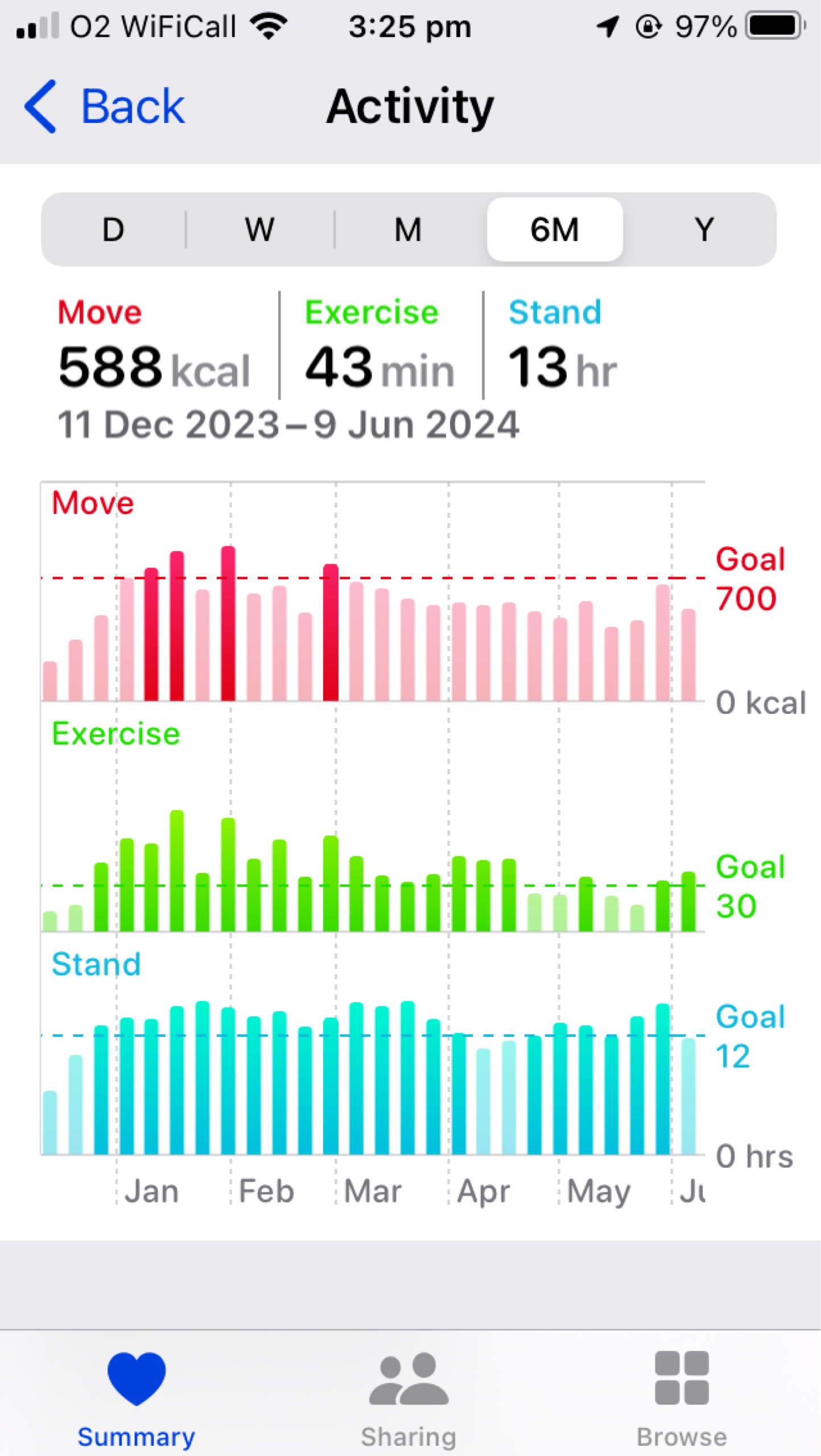
So, if you’ve decided what you would like to track, how would you like to do that?
One approach is to employ technology in one capacity or another, and there are two main ways of doing this. There’s tech that you enter data into, and there’s tech that collects data for you. The latter is obviously easier in many ways, and there are some measures that are very hard to keep a track of without technology. For example, a “wearable” that continuously monitors your heart rate will give a lot more useful information than you could gather taking your pulse with two fingers and a stop watch. A smart phone can measure the symmetry of your walking, and your walking stability, as well as, of course, the number of steps you take in a day and what distance that equates to. Some of them can even check for blood saturation levels and take an ECG. As a safety aspect, many of them can also detect falls - good for the elders in your life. They don’t necessarily have to use the watch for anything else if the tech is tricky for them, they can just wear it, and they don’t take long to charge - much better than a bulky button around the neck that most people forget to wear!
You can also use technology to track your sleep, and some wearables take some interesting metrics around how stressed, strained or recovered you are (some of us would probably rather not know! It’s only worth knowing if you are in a position to do something about it, I would say).
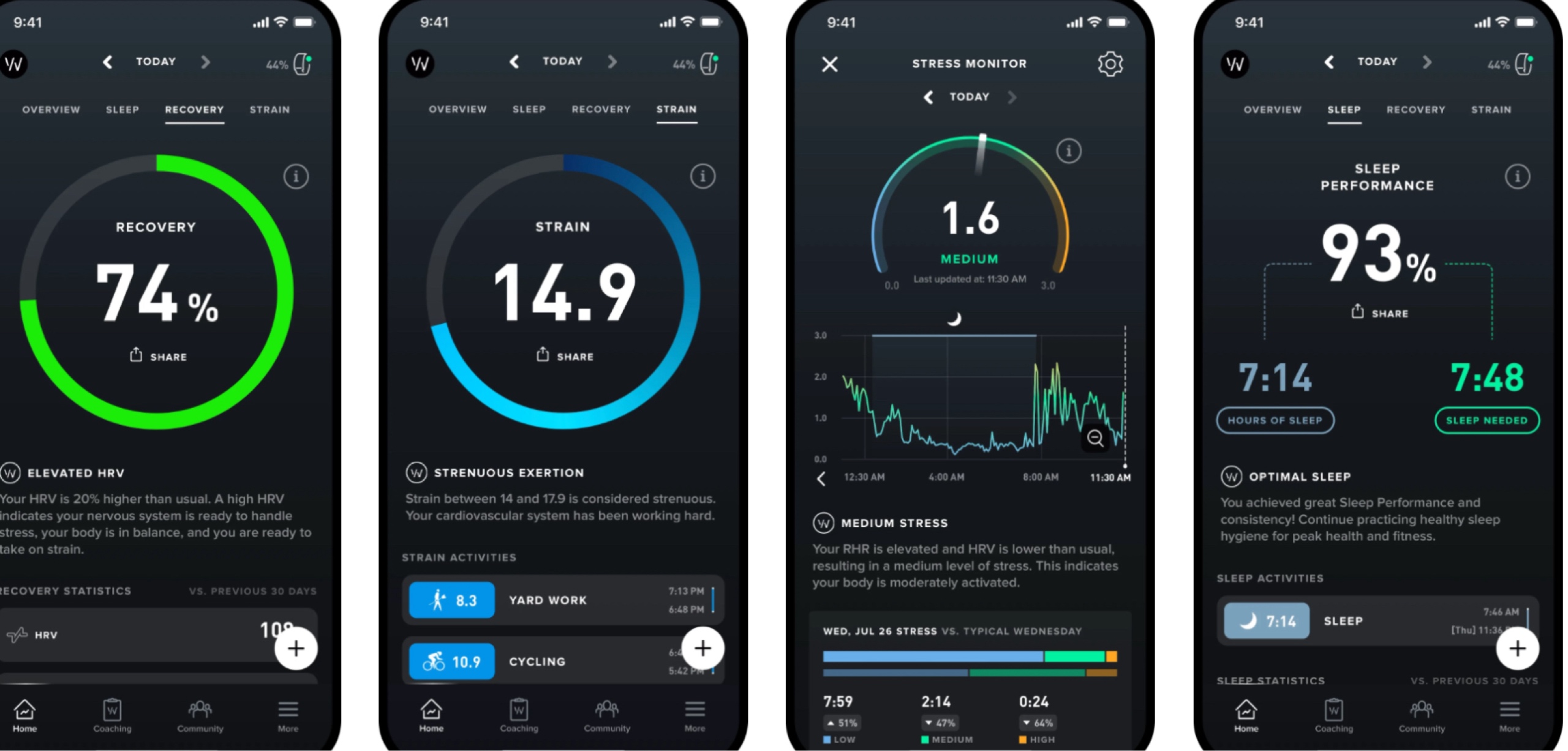
Then, as well as the data that is being continuously gathered, there’s the information that you might input, into an app of some kind.
I’ve mentioned the Streaks app a few times, and I do find it immensely useful. The article below also ranks it as the top app, for iPhone users. There are some other great app suggestions, with all the pros and cons, and you can see which might suit you best, if this sort of approach appeals to you.
https://zapier.com/blog/best-habit-tracker-app/#habitica
If tech isn’t for you, or even if it is but you like more than one approach, “Bullet Journalling” can be very good for people that like taking pen to paper, and some of the examples out there are very beautiful. I’ve tried it a few times myself, and have found it to be very effective when I am actually committed to it, but I always end up lamenting that my handwriting is not what I would like it to be, nor my artistic talent. It might work for you, though!
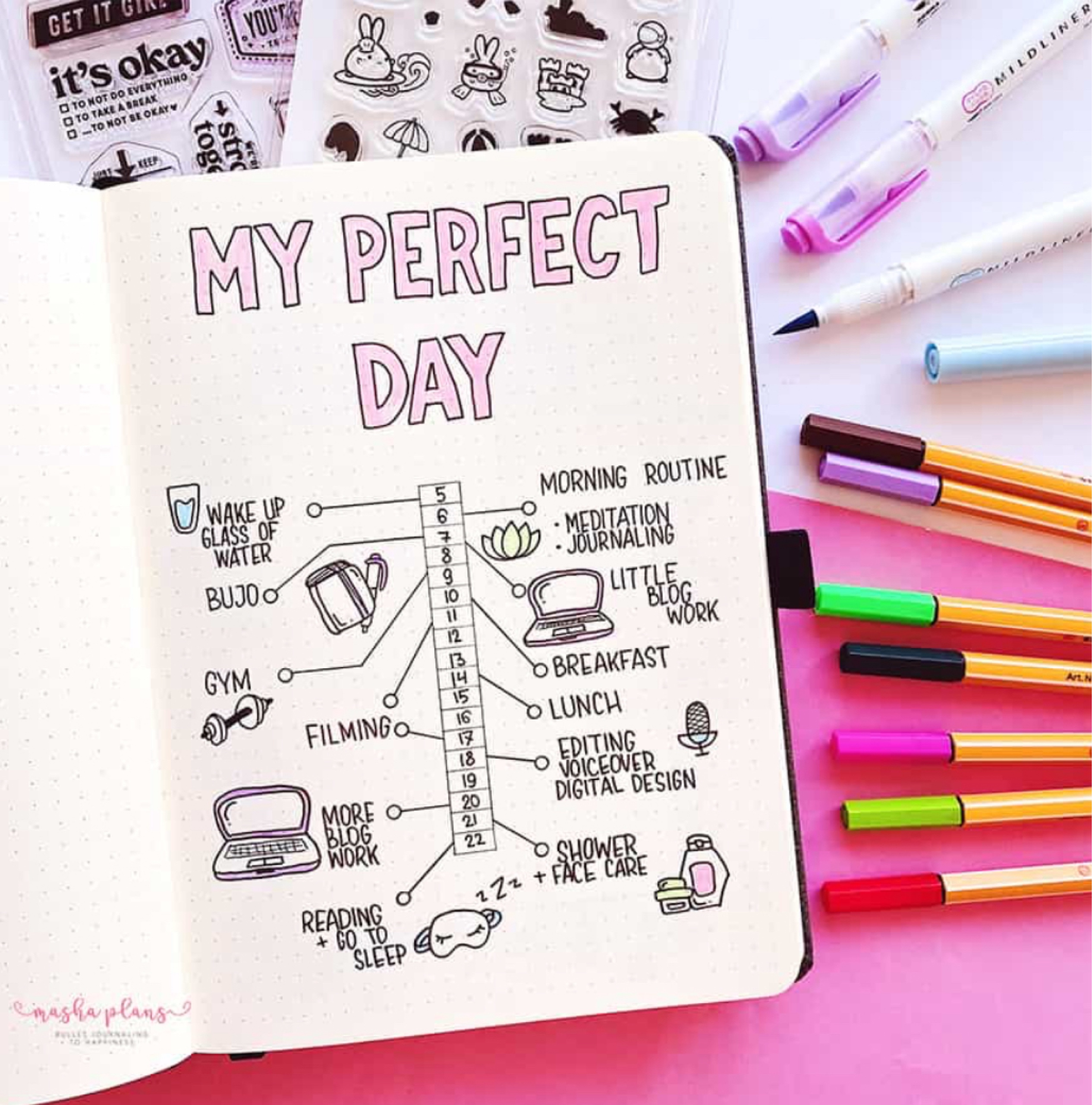
Another thing that people like to do is to invest in some attractive tracking sheets. A little bit like the family organisers, or the meal planning sheets. You can get examples where you fill in what you want to track, and then colour in circles to indicate that you have done that thing. You can adjust your intentions depending on what else you have got on, for example.
Some of these approaches and systems require quite a lot of involvement, and an investment in time. In a way, that can be part of the appeal: you acknowledge that these things require your attention and it can be pleasant to spend time with some coloured pencils and stickers. It might even be good for those with small children - something you can do while they have the art stuff out!
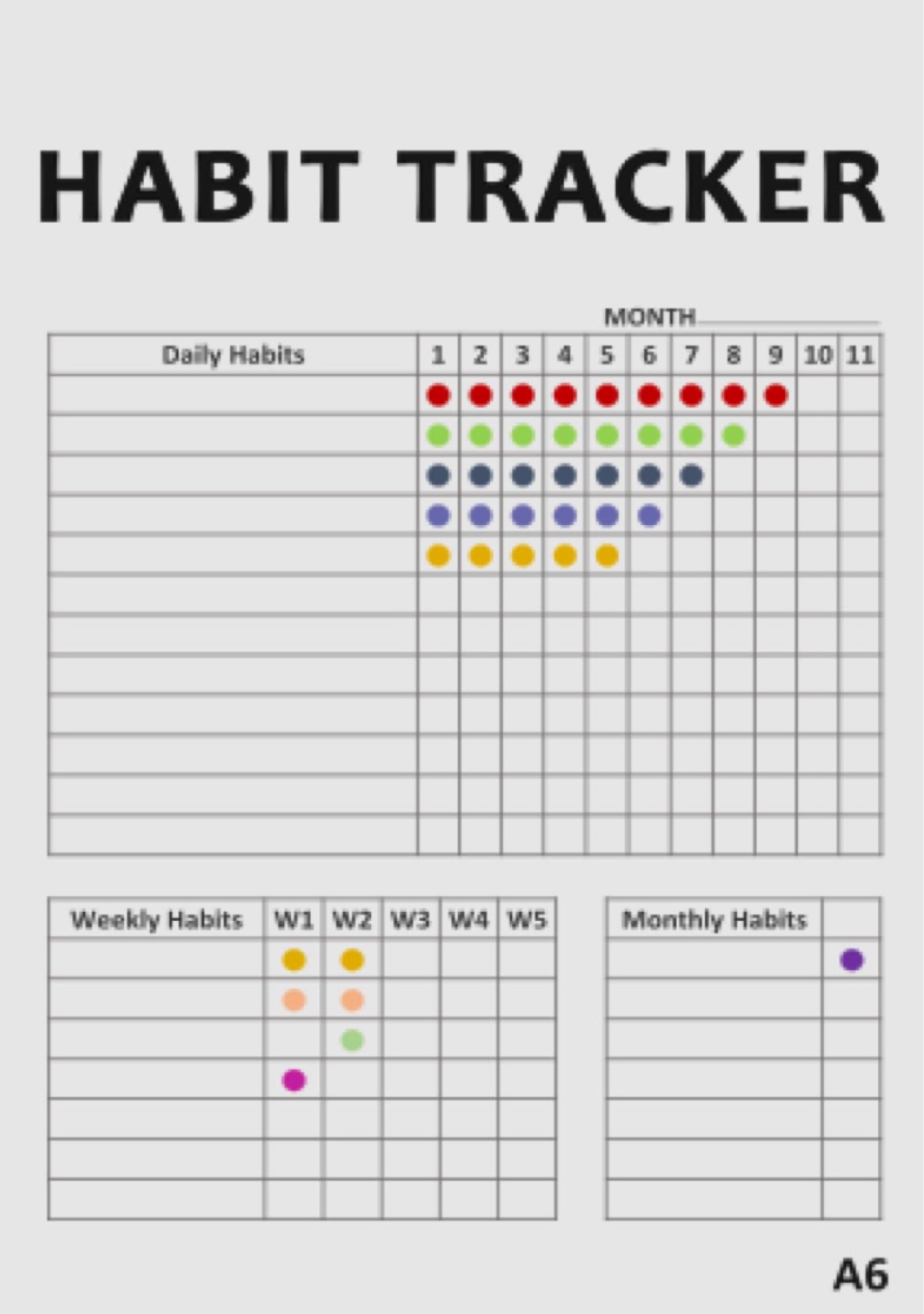
You might find a simple spread sheet works, or you might design your own tracking sheets on a computer and print them out.
Or something physical and visual can be appealing - like an abacus, or putting marbles in a jar every time you complete an activity. These work particularly well if you are happy with the “clean slate” approach - the idea that you empty all the marbles out of the jar and start again, or move all the abacus beads back to the start. If you like to keep a record, you could photograph the jar or abacus!
Some people get a small notebook and just tick off every time they do a certain activity. Or you could colour in a section of a “mindful” colouring book each time you complete a task. You could have it where you use different colours for different tasks and you would have a visual representation of how you spend your time.
As I say, tracking and recording and analysing might not be your thing, or it might be something you already do a lot of. It is certainly worth considering if you are thinking about incorporating any significant changes in your life, or if you struggle to develop new habits, or you don’t understand why certain things are as they are.
